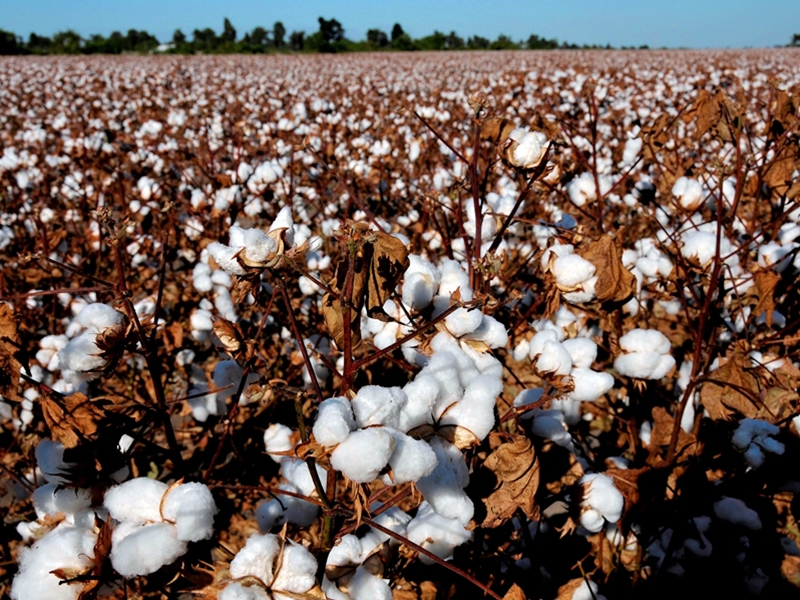
On the latest episode of Food, Farms & Forests, we explore recent research that shows pesticide use can increase productivity and profits for producers while reducing pressure on water, land and energy resources per unit of crop produced.
Marty Matlock, professor of ecological engineering with the biological and agricultural engineering department, conducted a life cycle assessment that found pesticide use helps advance sustainable agriculture. He and his collaborators considered what would happen if pesticides were taken out of the equation in the production of corn, soybean and cotton.
As the global population grows to 10 billion in the coming years, Matlock's report found that pesticides will be critical to producing the food we need.
"The consequence of not having access to these pest controls would be that it would take more land, more water, more greenhouse gas emissions and more energy to produce the same amount of crops," Matlock said. "We're going to have to make sure we have enough, that we can produce enough with the land we have.
"Otherwise, we will expand agriculture. Which is to say we will convert forestlands, natural prairies, arable land that are not in agriculture into agriculture in order to feed ourselves, and that will result in an enhanced biodiversity loss across the planet."
The episode can be found in the player above or by visiting the Food, Farms & Forests page. The podcast is also available on Apple Podcasts, iHeart Radio, Spotify, and YouTube Music.
About the researcher: Matlock teaches ecological engineering in the department of biological and agricultural engineering and conducts research as part of the Arkansas Agricultural Experiment Station, the research arm of the University of Arkansas System Division of Agriculture. He previously served as the executive director of the University of Arkansas Resiliency Center. He has co-authored four books and more than 50 peer-reviewed manuscripts. Matlock's research focuses on technologies and processes to increase the resilience of ecosystem services in human-dominated ecosystems. His focus is on the interface of food, water and community systems.
About Food, Farms & Forests: The Food, Farms & Forests podcast explores the latest food, fiber and forestry research from the Arkansas Agricultural Experiment Station. Scientists with the University of Arkansas System Division of Agriculture share their scientific discoveries and innovations in the food and agriculture industries, explaining the methods and purpose behind their work.
About the Division of Agriculture: The University of Arkansas System Division of Agriculture's mission is to strengthen agriculture, communities, and families by connecting trusted research to the adoption of best practices. Through the Agricultural Experiment Station and the Cooperative Extension Service, the Division of Agriculture conducts research and extension work within the nation's historic land grant education system. The Division of Agriculture is one of 20 entities within the University of Arkansas System. It has offices in all 75 counties in Arkansas and faculty on five system campuses. The University of Arkansas System Division of Agriculture offers all its Extension and Research programs and services without regard to race, color, sex, gender identity, sexual orientation, national origin, religion, age, disability, marital or veteran status, genetic information, or any other legally protected status, and is an Affirmative Action/Equal Opportunity Employer.
Topics
Contacts
Jenifer Fouch, content writer, communications specialist
Arkansas Agricultural Experiment Station
479-502-9732,